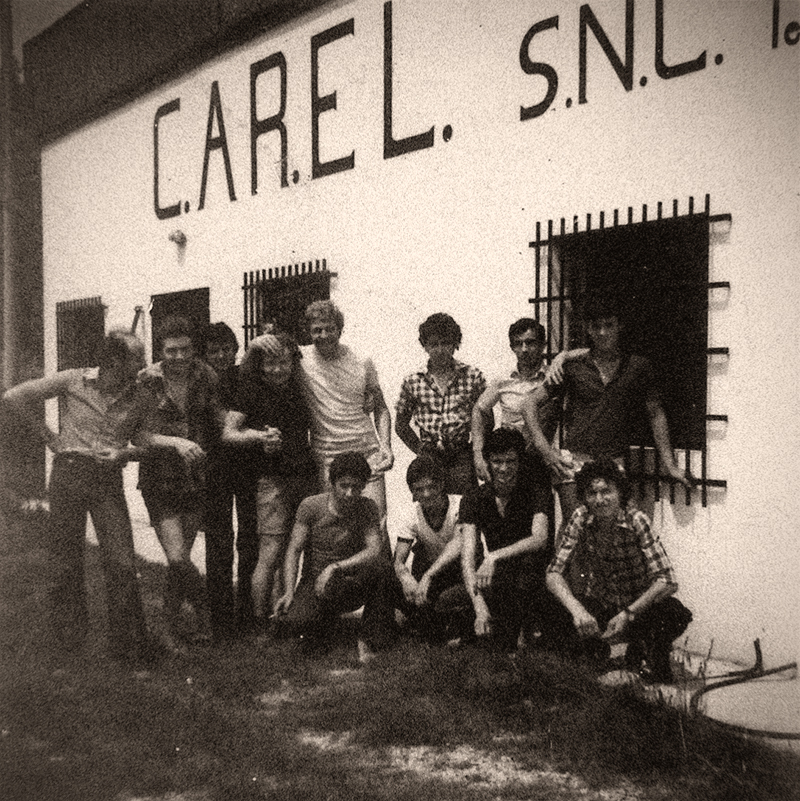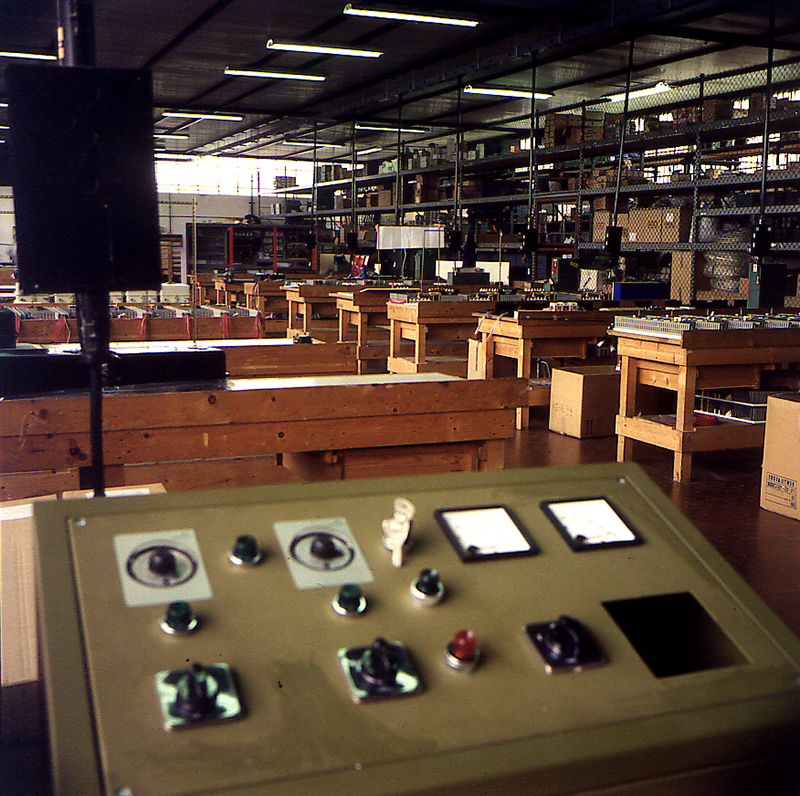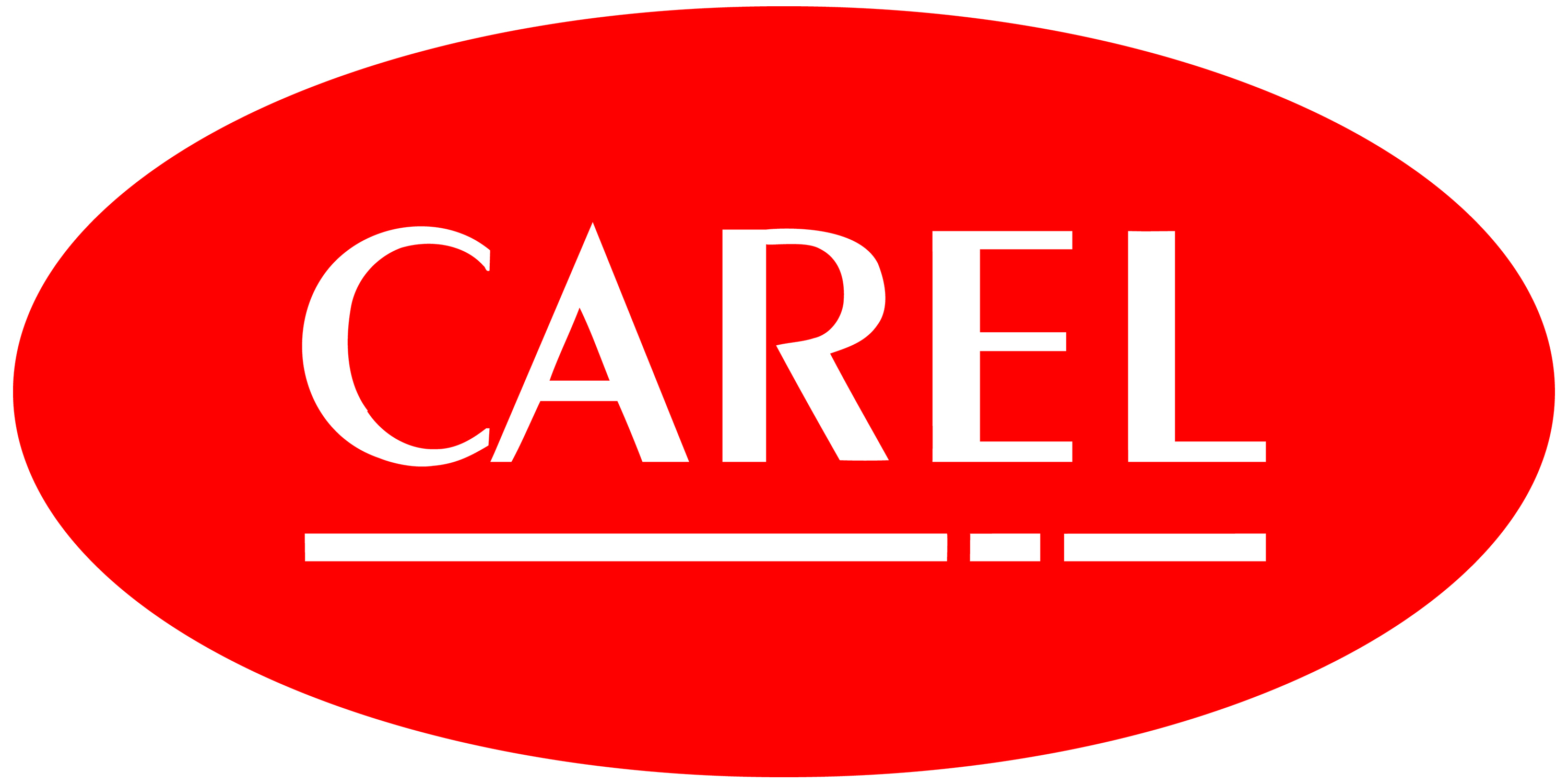Intervista Luigi Rossi Luciani - ver2
"It was a Friday afternoon. Being such a beautiful sunny day, I took a book and went to sit outside [...] Two months later I, together with three partners, founded C.AR.EL."
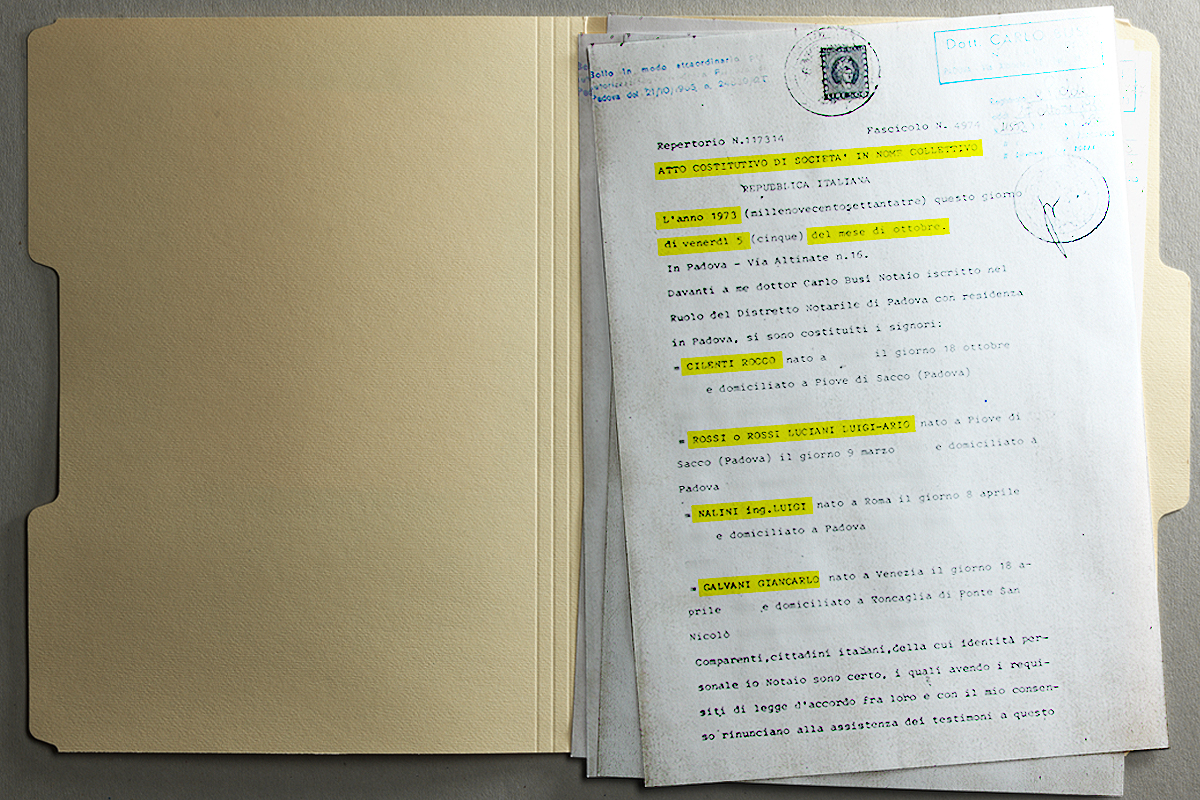
What was the spark that led to CAREL being founded?
It was a Friday in September 1973.
At the time, I was running Nastrificio Victor, a family business operating in the textile sector that still exists today. The sector was going through a slow period, there were few orders, and that afternoon I didn’t feel like staying in the office.
Being such a beautiful sunny day, I took a book and went to sit outside, in the courtyard of a café in the centre of Piove di Sacco. While I was sitting there, my cousin Rocco Cilenti passed by and was obviously surprised to see me sitting there, instead of being in the office. He asked me if I wanted to go with him to Milan to visit a supplier who built electrical cabinets for Hiross, a local company that made air conditioners for data centres.
Two months later I, together with three partners (Rocco Cilenti plus Luigi Nalini and Giancarlo Galvani), founded C.AR.EL: an acronym for Costruzioni ARmadi ELettrici (electric panel construction). Without having even done even the most basic market research, that visit gave me the sense that there was an opportunity to shift the production of electrical cabinets to where we are here, closer to Hiross.
How many staff did you start out with at CAREL?
In the beginning, very few: we had 4 or 5 people in production and a couple in the office. They were all from our local area, who had joined the new company through word of mouth, and I must say they were all really good at their jobs. The very first was Mario Chinello, a man with great technical skills who already worked in the sector. He then trained all the others.
However, we soon realised that we need to try something new: electrical cabinets were very simple products with low margins, so we explored new avenues and the company began to grow.
Over the years, we expanded our production and product portfolio, and C.AR.EL. became more simply CAREL, a name that has certainly brought us luck.

"We started out working in air conditioning. Then we moved into refrigeration, a much more competitive market, where the companies we've been competing against were and still are much larger than us. And having seen our growth, some of them periodically tried to acquire us."
Where was CAREL first located?
As we grew, we often needed to change site, as we kept getting too big for where we were located.
The first, in 1973, was a warehouse in Corte di Piove di Sacco (Padova) that had just been vacated by a company that had closed due to bankruptcy. Then we moved a couple more times, until coming to the industrial park in Brugine (Padova), where we still have our headquarters today and where we have built six buildings, the latest two which will open this year.

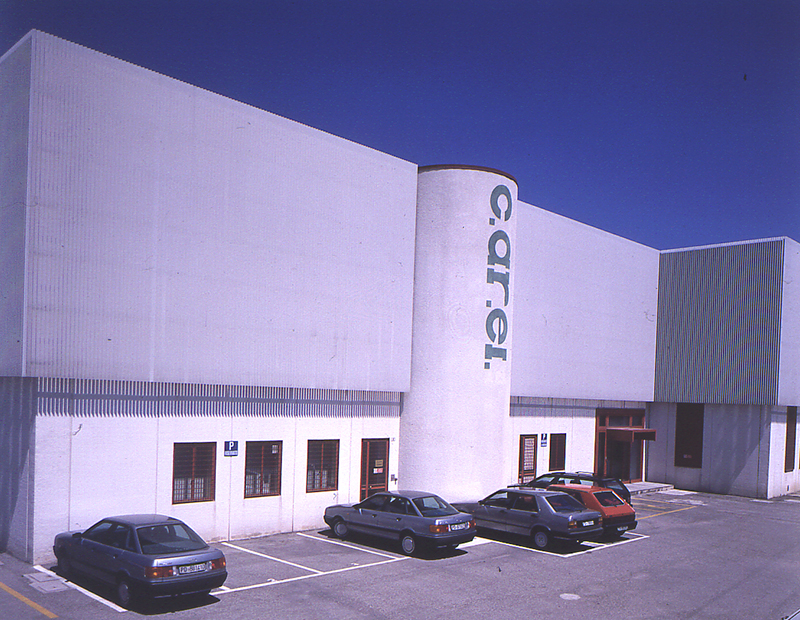
What was the key to this growth?
We started CAREL because we saw an opportunity we didn’t want to let slip away. And we did so with inquisitiveness, the will to learn.
Because in life you should never stop learning, you can’t stop. Even today, when everything moves so fast, much faster than before.
There was the need to seize the opportunities that had arisen, yet at the beginning, nobody of course believed we would grow so big. However, we soon realised that we had become a somewhat unique company, because in addition to having good skills, both in electronics and mechanics, we also had something that the others perhaps didn’t have: we really knew the environment in which our products were used, and this helped us improve and innovate.
The key was therefore the desire to improve, to do things right. And there was also the will to do new things too. We had a great team of young engineers, such as Corrado Marchetti, and thanks to them we managed to achieve a high level of quality.
However, the major change came with the arrival of Umberto Bianchini (who is still at the company as Innovation Manager) in 1986. His arrival coincided with the start of our programmable electronic controller business, a sector we were pioneers in: we shifted from analogue to digital, applying these technologies to our products.
And meanwhile the company was growing not only by expanding its range, but also and above all at an organisational level; in the early 2000s, I attended with keen interest the courses organised by the Chamber of Commerce on lean philosophy, and thanks to that experience we started applying lean at CAREL a few years later.
